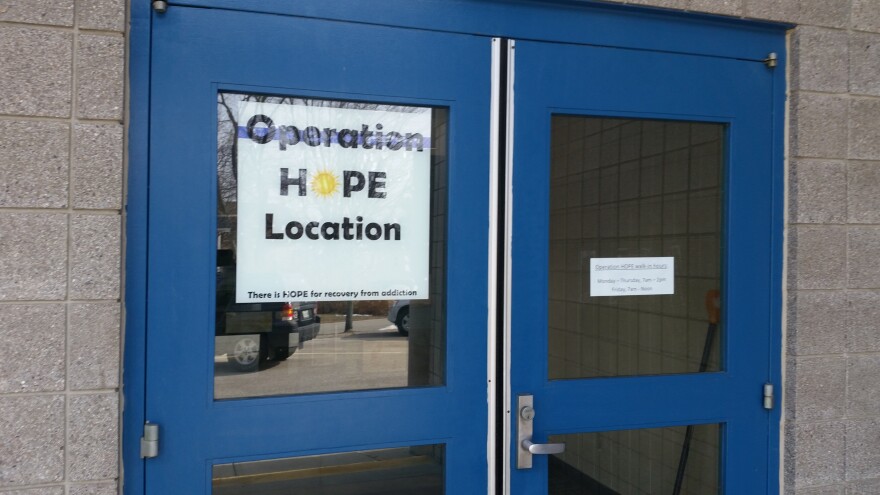The Scarborough Police Department says its program to help people with addiction is showing positive results.
Six months after launching Operation Hope, the program is reporting that 62 out of 68 people contacted say they are still in recovery and doing well. Police call that a 90 percent success rate.
But addiction specialists say there’s a reason to be skeptical of both the statistics and the drug treatment being used.
Of the 140 people who’ve been referred to treatment through Operation Hope, nearly all have been steered toward residential programs that rely on a 12-step approach associated with Alcoholics Anonymous.
The programs, mostly out of state, are abstinence-based. That means they don’t use methadone or buprenorphine, two medications that are considered the most effective approaches for opiate addiction by a wide range of health organizations.
Treatment without medication, says addiction specialist Dr. Mark Publicker, hasn’t been shown to work.
“There remains no evidence, no publication, no peer-reviewed journal that supports the use of nonmedication treatment as an effective treatment for opiate addiction,” he says.
Publicker is the past president of the Northern New England Society of Addiction Medicine. He previously worked at Mercy Recovery Center, the state’s largest drug and alcohol rehabilitation program in Westbrook, until it closed last year. He now has his own practice in Portland where he treats patients with buprenorphine, commonly known as Suboxone.
Publicker says that not only are residential, abstinence-based rehabs ineffective, they’re much more expensive than medication assisted treatment. He suggests there’s a better way to approach Maine’s drug problem.
“We can immediately be able to implement strategies involving medications that are desperately wanted by the patients,” he says. “It’s a tragedy. We all know that. We need to act now.”
But for Scarborough Police Chief Robbie Moulton, Operation Hope does represent action. The program to help people take the first steps toward recovery is a source of pride for the police department.
Police work with volunteer “angels” from the Portland Recovery Community Center to find abstinence-based treatment for people who are ready to turn in their drugs, no questions asked. And six months in, Moulton feels good about what he’s hearing.
“Some of the folks from Portland Recovery Center have been following up. We’ve been asked a lot how are people doing, what’s the success rate and so forth? What’s happening when people come back here?” he says. “And as of yesterday they had reached out to 68 of the Hope participants and 62 of the folks were still in recovery.”
Moulton acknowledges that self-reporting by clients is anecdotal and unscientific, since clients may be reluctant to report that they’ve relapsed, especially to the police.
“But at the same time these are folks who have, you know, trusted us and walked through the door and asked for help, and I don’t think there would be any reason for them to lie to us,” he says.
On the police department’s Facebook page, a few of the people who’ve been helped by Operation Hope have written to express their gratitude.
Dr. Merideth Norris, an addiction specialist who works at Grace Street Recovery in Lewiston, says she appreciates that police are helping to reduce stigma around drug use, but she has some concerns about the program’s messaging and claims.
“They’re presenting a 92 percent success rate. The national average of medication assisted treatment, which is the most evidence-based intervention, is approximately 40 percent for long-term recovery,” she says. “And that’s if we’re really being inclusive and optimistic.”
And that’s where the math comes in. Norris says public health research can’t be based on calls to patients asking how they’re doing, and using the results to assess the effectiveness of a treatment program.
“If I put out there on the Internet that I came up with a 92 percent success rate in curing cancer, I would be committing fraud and I would be committing malpractice,” she says. “I’m held to a level of accountability that if I claim an effective treatment intervention for a life-threatening illness — which addiction is — I’m expected to be able to back up those claims.”
It’s still not clear how the other 70 or so clients have fared, but Moulton says the program is doing the best it can to try to find out.



